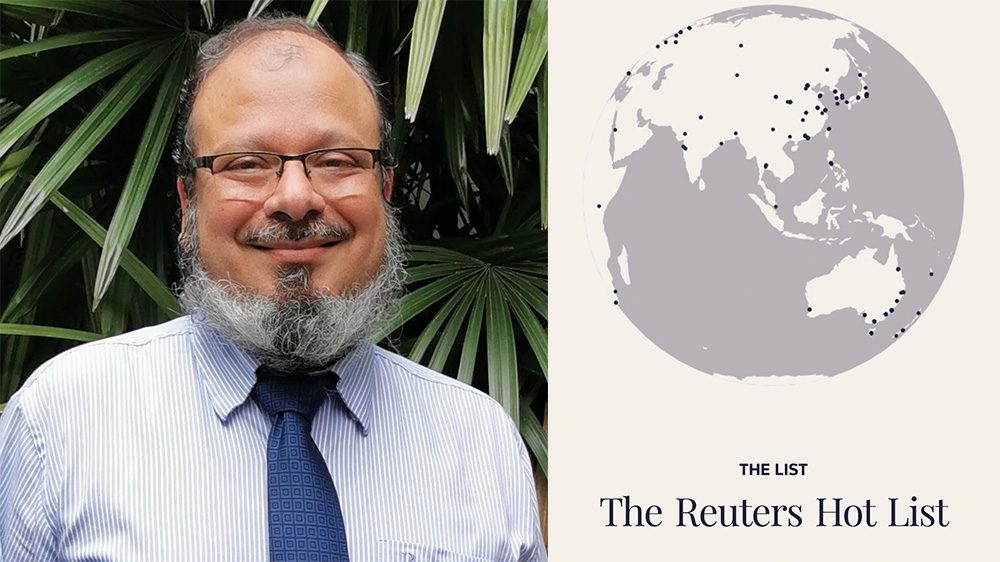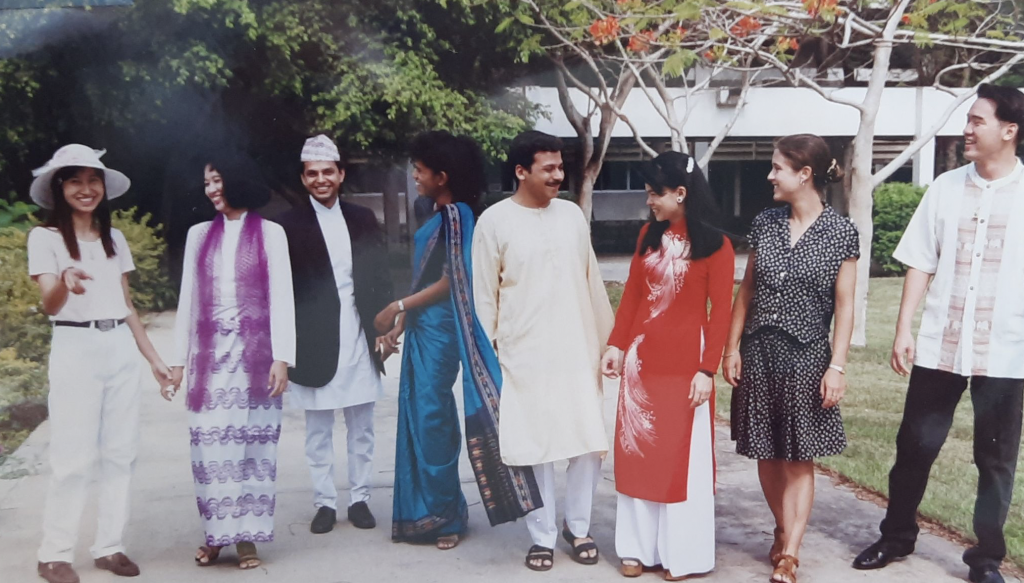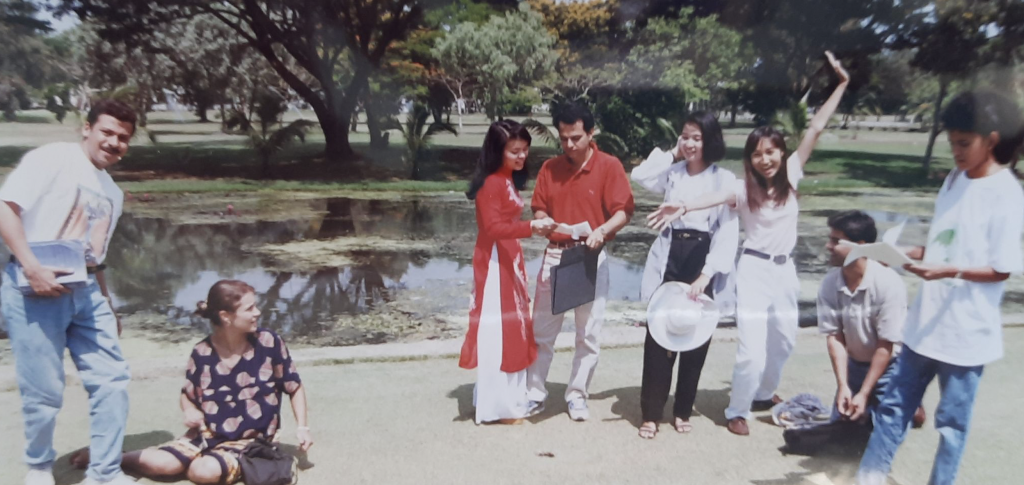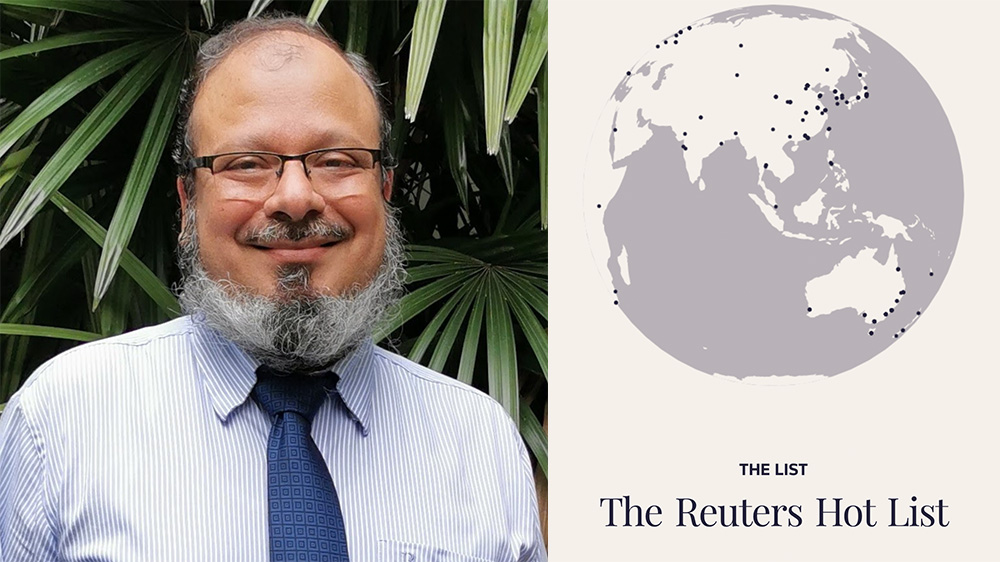By Kanda Yaemboonruang
More than 20 years in science, with 237 papers published with over 6,000 citations, and countless young researchers under his wings, AIT alum Prof. Shabbir Hussaini Gheewala is one of the most influential scientists in Thailand and has made the 2021 Reuters Hot List of the world’s top climate scientists with his expertise and dedication on his scientific work related to sustainability, life-cycle assessment and global warming. Dr. Shabbir, civil engineer turned environmental scientist, told us how AIT changed his purpose in life.

“AIT taught me how to do research, more than the research itself that I had done. I learned the principle of research, how to do things that I have never done before. It was very rewarding when I changed my field from civil engineering. I started from zero in the environmental science field, but I knew I could strive. It obviously took quite some time, but now my hard work has paid off,” Dr. Shabbir shared the moment when he chose a new path for his life.
He fondly reminisced the first time he came to Thailand on January 2nd, 1994 to further his education. He first joined AIT as a master’s student in the Environmental Engineering and Management (EEM), School of Environment, Resources and Development (SERD) and later enrolled in a doctoral program in the same field. “I admitted, at that time I didn’t know anything about AIT. There was no internet at my place in India, but one of my professors at my undergraduate institute told me the AIT is a very good institute, and that I should apply. I followed his advice and was awarded with a scholarship. That was my life changing decision,” he said.
Dr. Shabbir graduated with a Master’s degree in 1995 and a doctoral degree in 2001. During his 8 years at AIT, it was not all work and no play. He was also active in various extracurricular activities on and off campus. “I was the chairperson of the Literary group, I organized trips taking new students to places like Pattaya, and I also participated in cultural shows”. Moreover, he had to involve in many multi-cultural situations which indeed helped develop his cultural sensitivity and communication skills. These things have built his character and strong personality, and made him who he is today.
Having completed his master and doctoral degrees at AIT, he joined King Mongkut’s University of Technology Thonburi as a lecturer. “I work at the Joint Graduate School of Energy and Environment. My topics are mainly related to assessment of energy systems, sustainability assessment of Energy Systems. In Thailand, we have a lot of bio-energy, especially in agricultural systems. I studied agriculture, food, energy and everything about sustainability assessment and my specialization is to develop life cycle assessment and life cycle thinking tools for economic, social and environmental assessments. It is the life cycle or systems thinking.”

He continued, “The world is my lab, so I am there in the field or in the factories working with companies and the government. When the government introduces a policy on energy, we assess that, looking at what would be the consequence of their policy on the environment.”
Among the various hats he is currently wearing, the Hot List scientist alum is most proud of his role as a mentor to young researchers who search for inspiration and attempt to make a mark in the world just like he once did when he was a young researcher at AIT.

“Around 11 years ago, I was approached by National Science and Technology Development Agency (NSTDA) to mentor researchers. I chose to focus on topics that I found crucial and that, I felt, required a great deal of research such as food, fuel and climate change. I then started a research group with senior researchers consisting of faculty members from different universities in Thailand,” he described.
With climate change as one of his key research foci, Dr. Shabbir spoke with passion about how global warming is everyone’s issue. In agriculture, it is even more pressing that research is done to investigate climate change impact mitigation as many elements of the agricultural process such as plant cycles are greatly affected by the phenomenon.
“Some people believe all of this climate change is a hoax, saying it is not true, it's not real, but the evidence is there for us to see. The number of tropical storms has been increasing at an alarming rate. We have more and more occurrences of El Nino and La Nina. We have problems with drought. In Thailand itself, people can see we have problems every year, almost every year, about flooding or drought. Although internationally, governments seem to attempt to create social protocols such as the Paris Agreement, we are not quite on track to the target yet.”
Dr. Shabbir further suggested, “We have to really work hard and try to solve the issue of climate change very seriously. We need to take action now. Once the situation has gone beyond its tipping point, no matter what we do, we cannot fix it, then we are left facing the consequences of our inaction. We must remind ourselves that until a certain point, things are still reversible. Therefore, the time to take action is now.”





